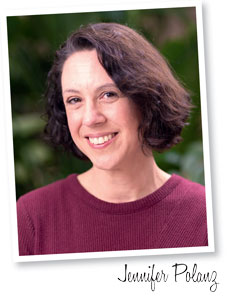3/28/2025
Be the Exception
Jennifer Polanz

It started with a news article on “No Buy 2025”—a TikTok and Instagram phrase that some were adopting. Whether it was to embrace minimalism or simply because prices are higher and they were trying to save, it’s still a concern for any retail-focused business. Then came a flood of stories about tariffs, consumer sentiment and stock market fluctuations, more indicators that Americans may be spooked by the economy.
I shot out some emails, one of which was to Sid Raisch, a service provider for The Garden Center Group and a longtime friend in the industry. I asked Sid (and I’m paraphrasing because I don’t remember exactly how I asked): Is this something to be concerned about or will it be an instance where consumers will flock to their gardens and stay home, similar to COVID—meaning, come to the garden center looking for respite from uncertainty?
I do remember word for word Sid’s response: “Why wait to find out? Why not make it go the way we want it to go?”
Ding, ding, ding—and this is why I call Sid. When COVID first emerged in the U.S., it was a scary time. Remember “two weeks to slow the spread?” That turned into retail in certain states having to close, some longer than others. Thanks to a few quick-working individuals in The Group and AmericanHort among others, the message became clear—we are essential. Not only do we provide seeds and accessories for growing food, but even more importantly, plants in general are essential to health and wellbeing. And we had the data to back it up.
Guess what? We still have that data. The message is different now, though. We’re still essential, but the message is more why we are essential right now: for wellbeing. Whether that’s healthy food that can grow in the garden or the physical act of gardening or the mental wellbeing that comes with being surrounded by beautiful plants, it’s all encompassing.
If you need proof, there’s plenty of resources out there, from AmericanHort to America In Bloom, Seed Your Future and KidsGardening.org. There are other aspects to bring in, too. Pollinators and the plants that attracts them are in the public eye, and they help the overall health and wellbeing of the garden and local ecosystems. Birding is one of the most popular hobbies in the country, and it’s something that contributes positively to Americans’ mental and physical health. There are lots of ways we can help customers invest in their own wellbeing and the health of their gardens.
Another aspect of wellbeing involves community. Independent retailers have the opportunity to build like-minded community through their stores with events, workshops, activities and social media geared toward the wellbeing message (and don’t forget your own community of retailers, as well). Something I heard a long time ago at a general retail event was if you market toward younger generations, you’ll also attract older ones because they want to be “cool” and they’ll respond to the younger message. I don’t know if this still tracks today, but honestly, with the lower transaction counts we’ve seen over the past year, it pays to market more to a younger generation.
It’s funny how reality can either disabuse or reinforce theories, too. I wrote most of this on a plane to Las Vegas for a trade show. One stop I always make in Vegas is Bellagio’s conservatory. It was, as always, inspiring and whimsical, and the nonstop stream of people seemed to agree, taking photos and videos, and chatting with strangers about the floral wonders of giant bees and hummingbirds nested in a fairy tale-like setting.
It shows me that if we can entertain, inspire and educate, we can keep our customers coming back for more regardless of what’s happening in the world around us.
Here’s to being proactive! GP